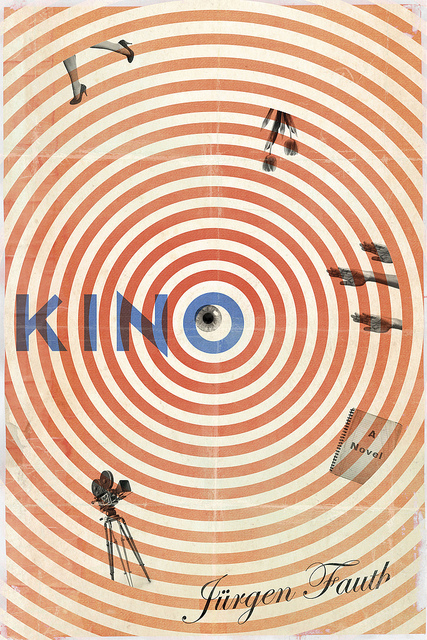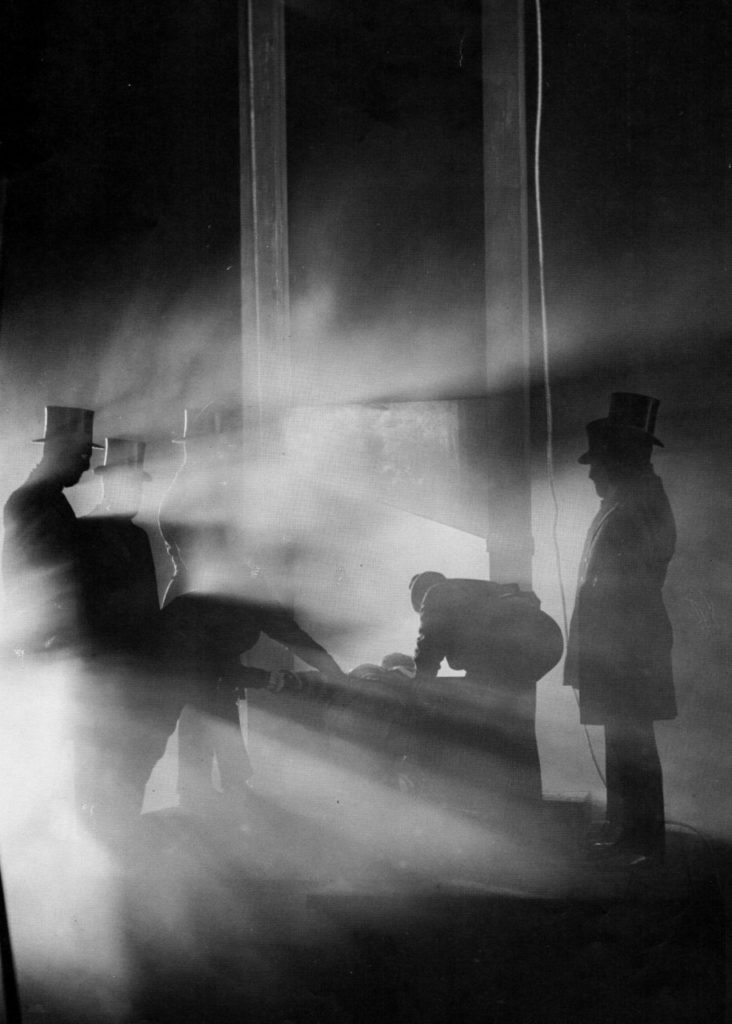
I’m not exactly sure where to begin. This book is incredibly fresh and exciting, yet nostalgic and wise. The narrative centers around Mina, a newlywed whose husband is hospitalized during their honeymoon. She mysteriously receives cans of film reels, a lost movie made by her grandfather, a German director. Intrigued, she takes them to Germany to find someone who can run the celluloid, and someone who might know their importance.
Underpinning all of this is the story of her grandfather, Klaus Koblitz. Rather like Germany’s Orson Welles Koblitz finds himself touted as a genius of the silent cinema in the heady days of the Weimar Republic. As he recalls in his journal:
Once upon a time, in another country, I was a young and hopeful cripple. I was a prodigy, the youngest filmmaker in Ufa’s history, the toast of Berlin. I still dream of champagne picnics on the Pfaueninsel, the Zoo-Palast filled with an ocean of flowers, just for me. I dream of Studio B and the sets we built for Jagd zu den Steren.
But all of that has been lost, destroyed, buried, bombed, and burnt. I lived my life for light and love, and now the bean counters and brain shrinkers want to break me. ~Pg. 44
As his star rises, so too does the NSDAP and what will soon bring about the Third Reich in Germany. Koblitz (known as Kino) will have to decide whether to stay in Germany with Ufa, or escape to Hollywood after Goebbels is named the Reichspropogandaminister. But unlike so many of his fellow artists, Kino falls for Goebbels’ flattery and attempts to flourish under the strict artistic vision for the volk.
As a cinema nerd (well, actually I have a Masters in Cinema Studies — and I studied German in college), this book is incredibly exciting. Real life personalities like Fritz Lang, Billy Wilder, GW Pabst and Peter Lorre appear. Classic films, studio heads, and cinema history are the very rich backdrop. Thankfully, Fauth expertly inserts these references and avoids sounding pretentious or false. The focus is always on Kino and his fate.

Fauth’s depiction of interwar Berlin – fleeting, sparkling and dangerous – makes one wish they’d had a chance to see it. There is also the incredible sadness among the revelers, knowing these days are numbered. Reluctance, pride, obsession, stubbornness and desperation all come to a head, in the light of a shining projector.
Mina’s discoveries about her family history unfold in layers. She learns about Kino from his own journal, and from the bits of film she is able to see. When see speaks with her grandmother, once a gorgeous screen goddess, she hears a different version of the same events. Penny is a cranky old woman who swears like a sailor and takes pills like a rock star. Her character is both hysterical and sad. But she also brings a living memory to the story — and just a hint of something supernatural, perhaps slightly steam punk.
Things in Kino’s movies had a tendency to really happen. It was like deja vu, except that you know it isn’t all in your head It often happened when I was tired, when the light was right and I turned my head just so. I’d recognize the way a group of people were arranged on the street or lines of dialogue overheard at the butcher. The more I began to notice it, the more I recognized the shots, details, angles, and compositions all around me. Once you’d seen Kino’s films, these echoes infiltrated the world. Klaus, conceited Arschloch that he was, simply shrugged and took credit — he called himself a visionary, and that suited him fine. He didn’t understand his power, had no idea how to control it, and he didn’t care. His movies set events in motion, I saw that clearly. It was extraordinary. Father and I used to talk about how the new physics might explain the phenomenon, but it only occurred at the edges of subjective perception. ~ Pg. 155
Again, Fauth does not allow the book to become mired down upon itself. After suggesting ideas, he quickly moves on — rather like seeing something out of the corner of your eye, then looking and wondering if you saw anything at all.
If I haven’t been clear, this book is fantastic. Read it. It’s enjoyable on every level. It moves quickly. There is history, adventure, mystery, danger, love, and humor. And like the films that have affected us all, Kino is a story that will stay with you.
___________________________________
Visit the author’s very cool site and follow his fantastic tumblr. He has made Klaus Koblitz seem so very real!
Many thanks to the folks at Atticus Books for the review copy.
Fiction/Literary Thriller, Trade Paperback Original
ISBN 978-0-9832080-7-5
5.25 x 8 in/248 pages
Publication Date: April 17, 2012
